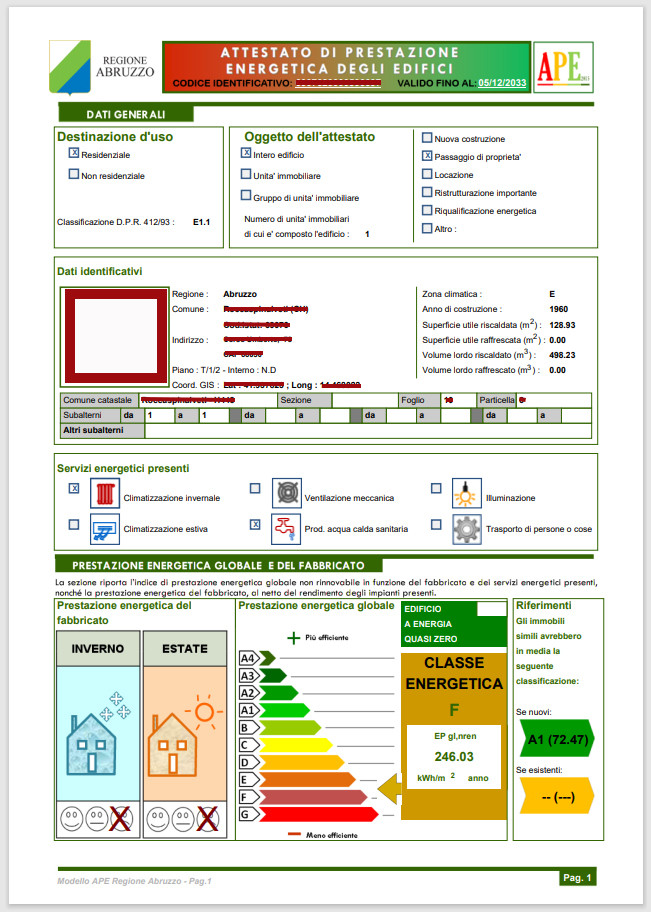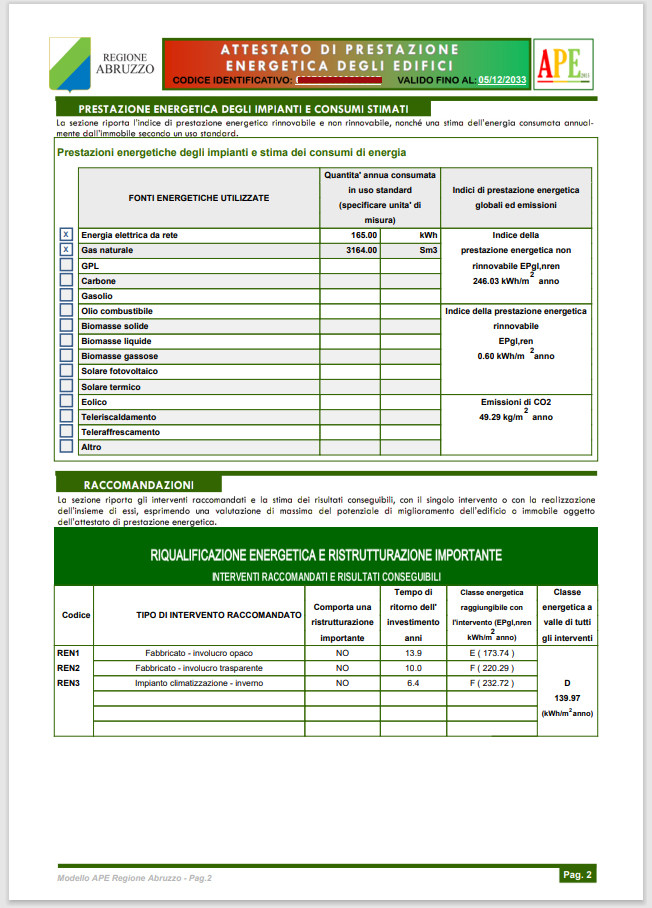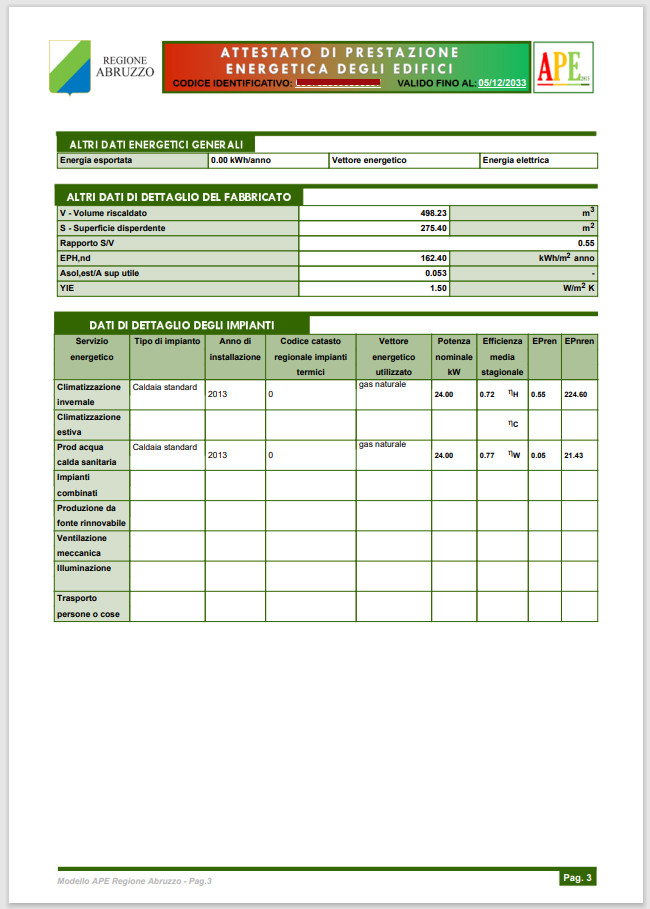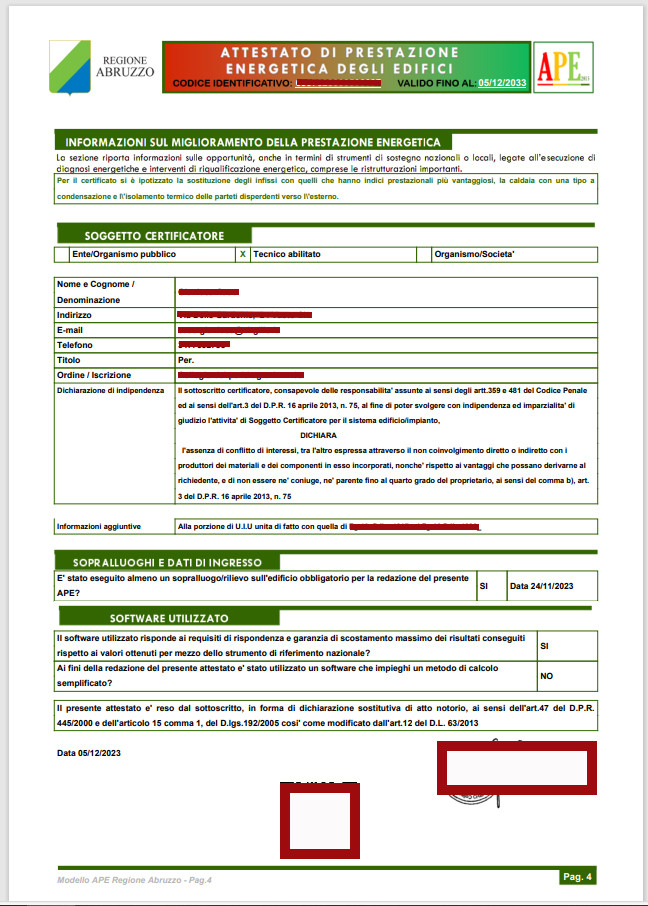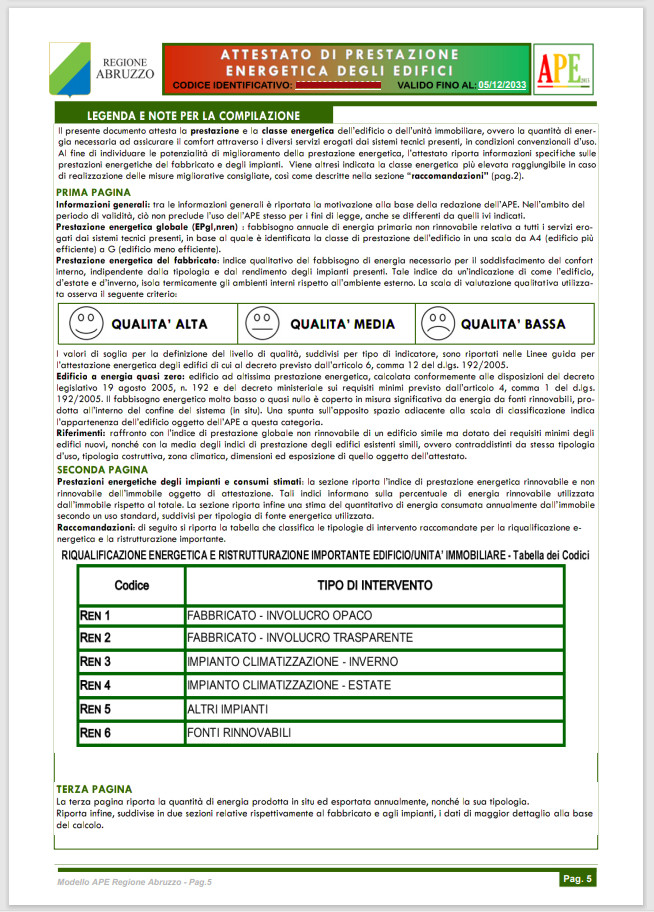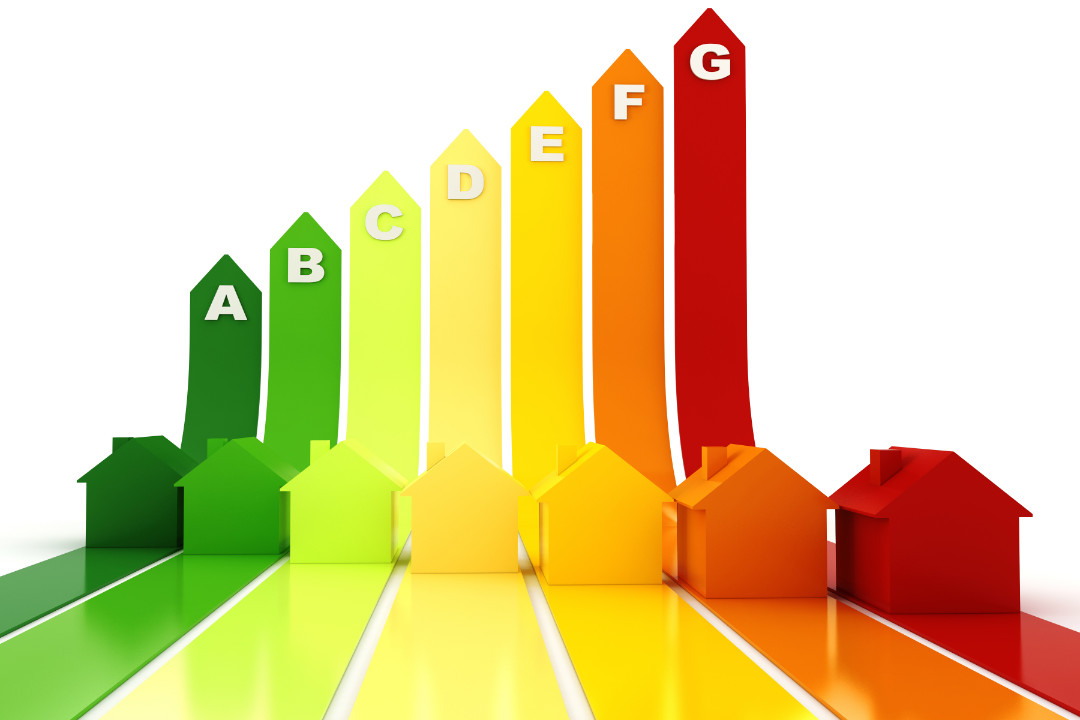APE (Energy Performance Certificate)
What is APE
The energy performance certificate (APE) is a document that contains the energy characteristics of a property and is a document that must be drawn up by the owners of a property and defines its energy performance, necessary for the sale of the property itself.
It is a certification that must be presented every time for a deed of sale, donation or rental of a property is carried out, whether it is sold (or rented) between private individuals or whether it is passed through an agency, for the rental of entire buildings or individual real estate units. The APE (energy performance certificate) is mandatory by law both in the case of new buildings and for renovations involving more than 25% of the surface of the property. The APE certificate allows the energy class of a building to be calculated on a scale ranging from A4 (the maximum score, which represents the best energy efficiency) to G (the minimum score) and must be issued by an accredited body after evaluating the characteristics of the property.
How is done
To draw up an energy performance certificate, is necessary an inspection by a technician (could be a geometra - surveyor). The certifier is called upon to carry out a series of investigations aimed at ascertaining the structural characteristics of the property. He will take into consideration all the parameters, from the boiler to the presence of systems capable of producing energy (heating or cooling system), to the quality of the fixtures.
Using special software, the energy analysis of the property also allows to evaluate the characteristics of the walls and the geometric ones of the building, the cooling and heating system of the rooms present, the type of system in use and any energy production systems.
Once the calculations have been carried out and completed, the certifier compiles a document issuing the energy performance certificate which summarizes all the energy characteristics of the property. The APE must be kept by the owner together with the rest of the documentation relating to the property, while an electronic copy is sent by the certifier to the regional register.
The APE must then be handed over to the new owner or tenant.
Who makes APE and its validity
Each new energy performance certificate is drawn up by an APE certifier. It is an accredited body, according to Presidential Decree no. 75 of 16 April 2013, with expertise in the field of energy efficiency applied to buildings.
The individual Regions manage the training, supervision and accreditation of APE certifiers through local laws. The energy certifier is a technician qualified for the design of buildings and systems, with civil and criminal responsibilities in the exercise of his profession. The energy performance certificate issued by him is valid for a maximum of 10 years, but to maintain it it is necessary to guarantee the periodic checks of the boiler required by law (every year). In the event that, during this period, renovation work is carried out on the property aimed at modifying its energy performance, the APE must be renewed.
It is compulsory
The energy performance certificate is mandatory in case of:- Purchase of a property;
- Rental of a property: entire buildings (to be attached to the contract) or individual real estate units (to be drawn up and not necessarily attached to the contract);
- Donation of a property;
- New buildings;
- Major renovation interventions, i.e. involving more than 25% of the property surface area;
- Demolition and reconstruction;
- Buildings used by public administrations and open to the public whose surface area exceeds 250 m2;
- In case of signing a new contract relating to heating or air conditioning systems for a public building.
When is not necessary
In the case of commercial rental, the Energy Performance Certificate is not mandatory only for some types of properties:- industrial and artisanal buildings when heated for production needs;
- rural buildings not used as residences without air conditioning systems;
- unusable or collapsing buildings;
- isolated buildings with a surface area of less than 50 square meters;
- the properties of public interest specified in Legislative Decree no. 42/2004;
- garages, cellars, multi-storey car parks, seasonal structures and all other buildings which are not included in article 3 of the decree of the President of the Republic of 26 August 1993, n.412.
What is the cost
For the APE (energy performance certificate) the cost can be between 150 and 250 euros based on the city in which it is drawn up and the characteristics of the building and the real estate unit. The discrepancy is mainly linked to the different market prices between the Regions, with the southern ones having lower costs, even if the method for drawing up the APE is always the same.
An evaluations of the property's efficiency class is essential in order to understand how to best manage your consumption. A low efficiency class, for example an F, can in fact lead to a greater expense on bills because, being not very efficient from a thermal point of view, it becomes difficult to heat with an increase in gas costs.
